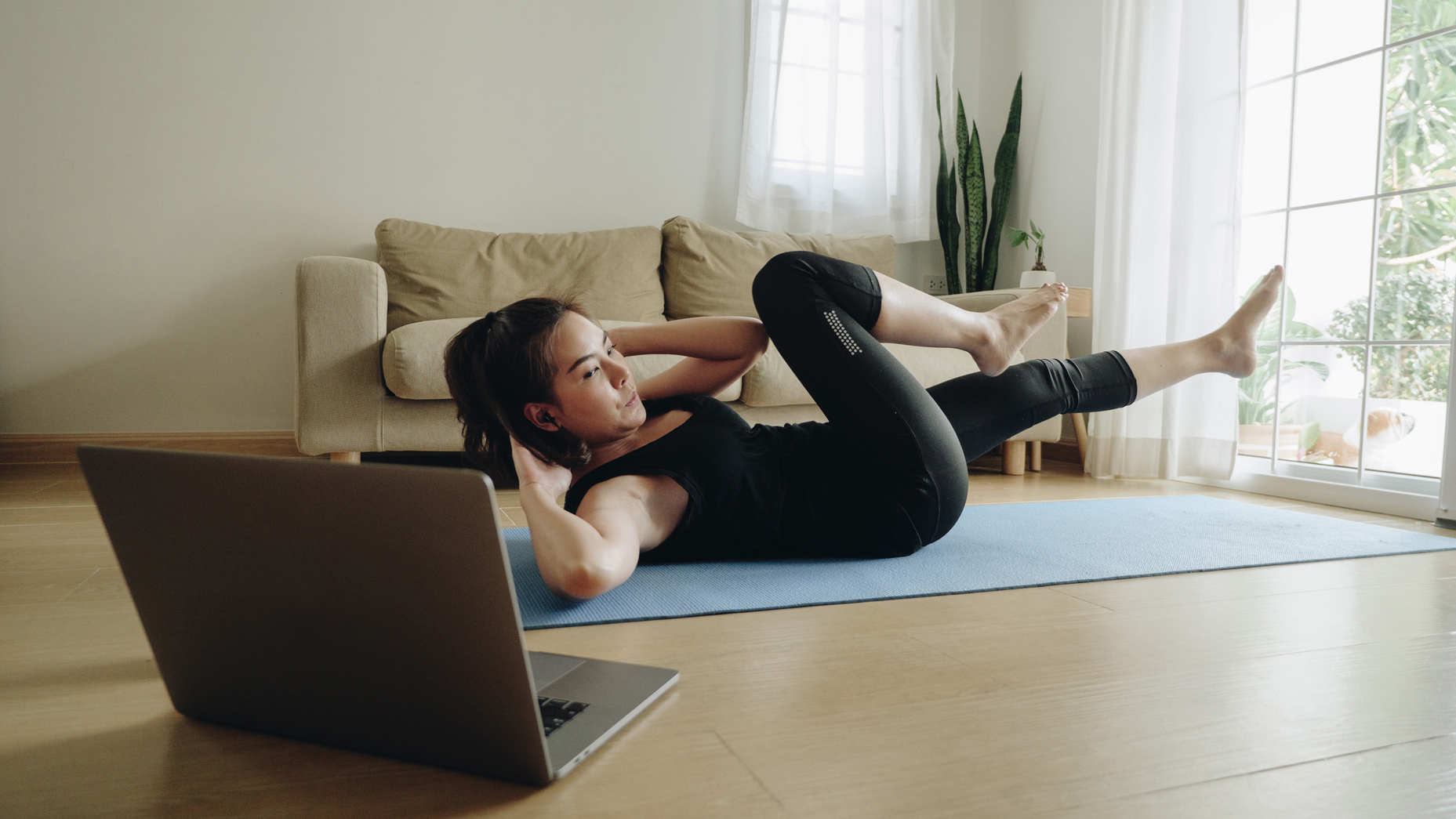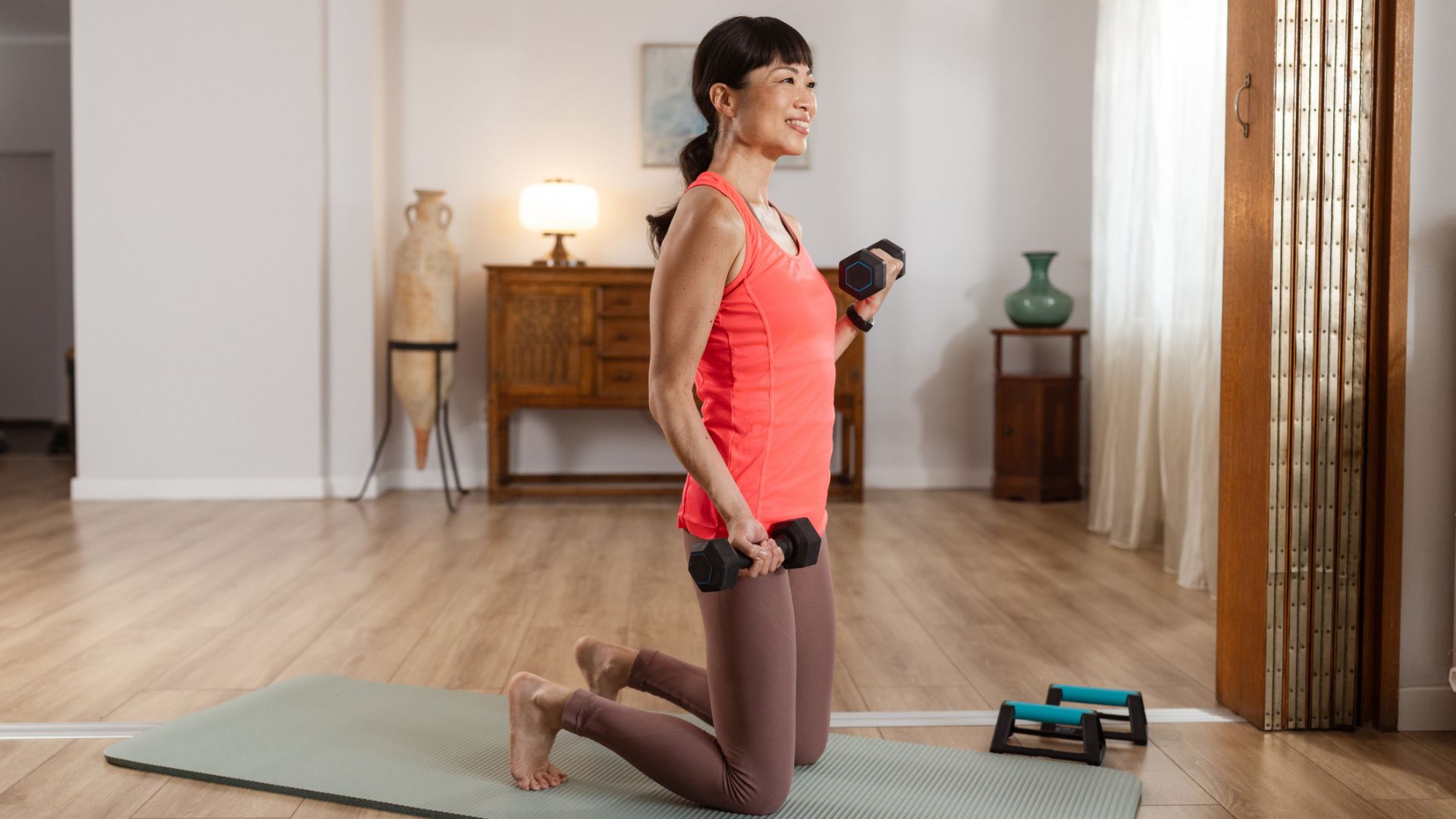Have lockdown workouts given you back pain?
A new study says more of us are working out than ever due to lockdown, but some of us are doing it wrong


Wherever you are in the world, chances are lockdown disrupted (or is disrupting) your lifestyle, forcing you to spend more time at home. With no more commuting, walking to the shops or trips to the gym, many of us began working out in the comfort of our front rooms.
Around 47% of British people were exercising daily during lockdown according to Mind Your Back UK, more than three times as many as before the pandemic hit. Whether following one of our YouTube yoga workouts or buying a set of adjustable dumbbells, we've tried to make it easier than ever to keep moving.
However, some home exercisers have gone too far: one third of these people have reported aches and pains from working out, including back pain.
- The best supplements for joints: Fight pain, swelling and inflammation now
Back pain can occur for a variety of reasons. Some mild back pain caused by working out could be delayed onset muscle soreness, or DOMS. Resistance training exercise using weights and resistance bands often lead to sore, painful muscles, but this is perfectly normal.
When you perform moves such as deadlifts or pulls, which tax your lower and upper back muscles, you might confuse DOMS with more serious back problems, but this muscular pain will usually subside in a couple of days as your muscles regrow and get stronger. If you're not used to exercising a particular muscle group, and you worked out very hard, you'll find these muscular pains are more severe.
More serious problems can include degenerative muscular and bone-related issues caused by the following:
- Weak back muscles, often due to lack of specific exercises
- Incorrect desk and workstation set up, especially hunching over a keyboard, leading to poor posture
- A poor sleeping position
- Unsupportive footwear
- Lack of general movement and exercise, such as walking
- Overweight, leading to more pressure on joints

Pulled muscles, muscle wastage, a lifetime of bad posture and osteoporosis, as well as other bone-related health issues, are only made worse by a sedentary lifestyle.
Get the Fit&Well Newsletter
Start your week with achievable workout ideas, health tips and wellbeing advice in your inbox.
It's easy to get stuck into a sedentary lifestyle while staying at home, and a few frenzied, unstructured minutes of exercise will only make the issues caused by the above lifestyle conditions even more painful.
Mind Your Back, a UK-based campaign backed by pharmaceutical corporation Mentholatum, which produce the Deep Heat and Deep Relief lines of muscular pain relief products, recommend the following steps to manage and mitigate back pain:
- Stretch, even for a few minutes a day. If you're not sure how to get started, you can check out our Beginner's Guide to Stretching.
- Therapy. It's natural Mentholatum, as the producers of Deep Heat, is going to recommend its own products. However, research published in the journal Physical Therapy has found heat, applied in the form of ultrasound and commercially-available hot packs, can increase the range of motion in muscles and joints.
- Exercise. If you think being overzealous with the weights is causing your back pain, take a step back and go for a walk or cycle ride instead. A report from Harvard University found weight loss is key in reducing back pain.
- Posture. Check your posture while working or watching TV. If you sit over a keyboard, make sure you have a posture corrector, ergonomic office chair and a laptop stand to bring your screen to eye level.
- Strengthen. Make sure you can improve your back muscles slowly and safely with resistance training exercises. Learn to deadlift properly to mitigate further muscle issues and strengthen your lower back.
Liked this?
- How to warm up: stretches, dynamic warm up exercises and more
Matt Evans is an experienced health and fitness journalist and is currently Fitness and Wellbeing Editor at TechRadar, covering all things exercise and nutrition on Fit&Well's tech-focused sister site. Matt originally discovered exercise through martial arts: he holds a black belt in Karate and remains a keen runner, gym-goer, and infrequent yogi. His top fitness tip? Stretch.
-
 Do your gut a favor with this dietitian's gut-friendly veggie-filled fried rice recipe
Do your gut a favor with this dietitian's gut-friendly veggie-filled fried rice recipeKeep your tummy happy with this flavorful twist on a favorite
By Lou Mudge
-
 I’m a personal trainer and these are some of my favourite exercises to build core and upper body strength at home
I’m a personal trainer and these are some of my favourite exercises to build core and upper body strength at homeAll you need is a set of dumbbells for this kneeling workout
By Maddy Biddulph